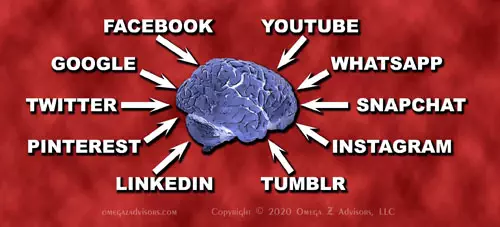Assessing Misinformation Infection In People In The Digital Age
The digital age expanded access to information. That included bad info as well as good. This means people are more misinformed as well as informed. Assessing misinformation infection becomes important. It goes beyond politics too. It applies to everyday life. That includes business.
Three Questions Assessing Misinformation Infection
Assessing misinformation infection begins by asking these three questions:
- Do you get most of your info from social media platforms?
- Do you get most of your info from politicians, pundits and experts?
- Do you get most of your info from videos and television?
Sometimes, in response, we might hear something like, “If I don’t get my info this way, where am I supposed to get it?” For instance, one asked, “How do you get pass the algorithms that direct you?” Both questions only reinforce a misinformation infection finding.

The digital age has brought with it the misinformation age. It’s in politics, daily life and business. Artificial intelligence and algorithms have turned digital platforms into people’s personal brown nosers, telling them what they like to hear.
Good Information Misinforming
In addition to making it easier to pass on bad info, the digital age has made it easier for good info to misinform. It’s like eating your favorite food every day. It’s good for you but not every day.
In this sense, artificial intelligence and algorithms turn digital platforms into brown nosers. They tell people what they want to hear with their searches and suggestions. As a result, for people, they promote creating and building a positive personal mental and emotional space that’s detached from reality – a “bubble.”
All the info in a bubble can be good; however, it’s without contrast. That means it’s black or white. This moves people to extremes.
Social Media, Experts And Videos
The promotion of bad info and bubbles forms the basis for the questions above. Social media take no responsibility for bad info. Politicians, pundits and experts become more like sellers of ideas rather than informers. Videos and television strive to go viral so put more into their emotional impact than their informational one.
Thus, the digital age has made it harder to be well informed. A million likes does not certify truth. Ironically, they’re more likely to certify lies. Lies move further and faster than truth in the digital age. In short, it has brought with it the age of information uncertainty. Diversity is the proven way to tackle such uncertainty
This especially applies to experts. Diversify. Contrast. Getting multiple opinions is good for our physical health. It’s good for our informational one too.
Now, the simple-minded will say I’m saying social media, experts and videos are no good. No. False. Wrong. Period. That’s why the questions ask most. It’s why they deal with contrast, form and type as well as viewpoint.
Read more. Watch less. Expand expert pool. Reduce reliance on a couple. Go to sources with many contributors. Leave those with only a few. Seek contrast. Avoid cloning.
Finally, in case people don’t know it, tell them tons of diverse ways exist to get good information that bypass algorithms and don’t involve social media, experts and videos.


